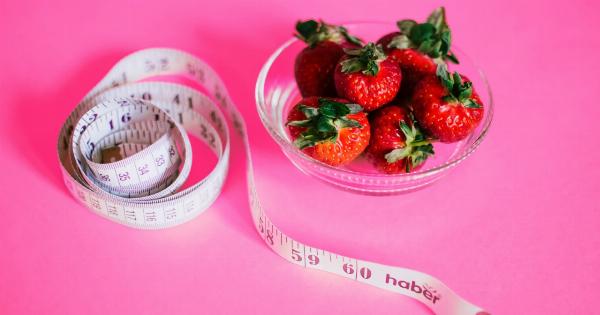We are constantly bombarded with information about what to eat and what not to eat. With so much conflicting advice, it’s hard to separate fact from fiction when it comes to healthy eating.
In this article, we debunk ten common myths about healthy eating that you need to ignore.
Myth 1: Carbs are bad for you
Carbohydrates often get a bad rap, but not all carbs are created equal.
While it’s true that refined carbs like white bread and sugary snacks should be consumed in moderation, complex carbs like whole grains, fruits, and vegetables are essential for a well-balanced diet. They provide the fuel our body needs to function properly.
Myth 2: Fat makes you fat
Contrary to popular belief, not all fats are unhealthy. Unsaturated fats, found in foods like avocados, nuts, and olive oil, are actually good for your heart and can help you maintain a healthy weight.
It’s the saturated and trans fats found in fried foods and processed snacks that you should limit or avoid.
Myth 3: Skipping meals will help you lose weight
Skipping meals may seem like a quick way to shed pounds, but it can have negative effects on your metabolism and energy levels. Instead of skipping meals, focus on portion control and choosing nutrient-dense foods to fuel your body throughout the day.
Myth 4: All calories are created equal
While calorie intake is important for weight management, not all calories are equal in terms of nutrition.
Choosing foods that are rich in vitamins, minerals, and fiber will nourish your body and provide sustained energy, whereas empty calories from sugary beverages and snacks offer little nutritional value.
Myth 5: You need to avoid all sweets
While it’s true that excessive sugar consumption is linked to various health issues, completely eliminating sweets from your diet is not necessary. Enjoying the occasional treat in moderation is perfectly fine.
Opt for healthier alternatives like dark chocolate or homemade desserts made with natural sweeteners.
Myth 6: Organic food is always healthier
While organic foods can reduce our exposure to pesticides, it doesn’t automatically make them healthier. The nutritional value of organic and conventionally grown foods is similar.
Focus on a balanced diet with plenty of fruits, vegetables, and lean proteins, regardless of whether they are organic or not.
Myth 7: Supplements can replace a healthy diet
Supplements should never be seen as a substitute for a healthy and balanced diet. While they can be beneficial for certain individuals with specific nutrient deficiencies, it’s best to obtain essential nutrients from whole foods whenever possible.
Aim to consume a variety of nutrient-dense foods to meet your nutritional needs.
Myth 8: Eating after 8 pm leads to weight gain
The myth that eating after a certain time will automatically lead to weight gain is not true. Weight gain or loss ultimately depends on your total calorie consumption throughout the day, rather than the time of day you eat.
Focus on eating balanced meals and snacks that satisfy your hunger and support your overall dietary goals.
Myth 9: All “natural” or “organic” labeled foods are healthy
Just because a food is labeled as “natural” or “organic” doesn’t mean it’s automatically healthy.
These labels refer to the production methods and do not guarantee the nutritional value or the absence of added sugars or unhealthy fats. Always read nutrition labels and ingredients lists to make informed choices.
Myth 10: You have to drink eight glasses of water a day
While staying hydrated is important for overall health, the “eight glasses of water a day” rule is not based on scientific evidence. The amount of water you need can vary depending on various factors like age, activity level, and climate.
Listen to your body’s thirst signals and drink water when you are thirsty.




























